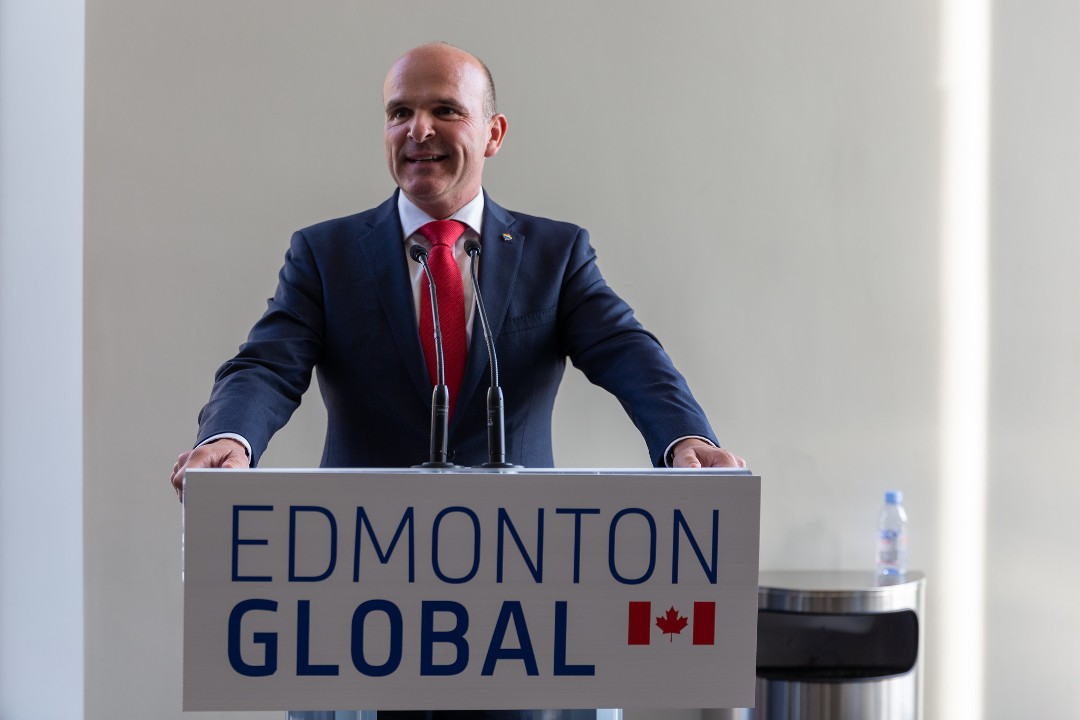A new administration report shows the percentage of taxes the city collects from non-residential properties is smaller than that same percentage across the region. Given non-residential taxes from businesses net a municipality far more than residential ones, the report poses a problem that the co-hosts were keen to discuss in Episode 269 of Speaking Municipally.
The report suggests the reasons Edmonton's share of the region's non-residential tax base is small are the city's higher taxes, utility costs, and design standards, as well as its relatively complex administrative processes.
But co-host Mack Male said city administration's Industrial Investment Action Plan report also proposes to shrink the gap and attract more businesses to Edmonton. "And that's the part that's really interesting to me about all of this," Male said. "This is a regional discussion, or it should be a regional conversation."
Male pointed out that Edmonton Global was created as a group of municipalities in recognition that investment in the region benefits all. "So, we should be benefiting from having a company come and set up shop in the Industrial Heartland, or in Sturgeon County or something like that, because those people come and live in the city, they shop in the city, you know, all of those kinds of things, that economic benefit should be to all of us. But at the end of the day, it's about taxes, isn't it?"
Co-host Troy Pavlek pointed out many of the businesses that locate outside city limits are doing so ever closer to Edmonton, with areas like the roads to Spruce Grove or to the Edmonton International Airport having almost no divide between city and region. "It's basically a bunch of businesses that feel like they're in Edmonton, but they're not quite in Edmonton," Pavlek said.
"Now it's kind of you can have your cake and eat it, too, which makes me wonder — is it time to annex Leduc, Spruce Grove, and St. Albert?"
Male said the report feels like a backwards step, as does the committee's response. "Committee approved unanimously that administration provide a report that includes an update on this Industrial Investment Action Plan, what steps have been taken, come back to us and also bring an unfunded service package for our consideration." Male said council's tendency has been to request such reports but have no plan to put them into action until they can get money in the future.
Pavlek shifted the conversation to what was supposed to be another committee discussion, about how city-led construction can harm small businesses, and what the city can do to lessen that. "I do think that if a city is performing an action that negatively impacts small business, we should be helping small business," Pavlek said. "We've created a situation where we build in a way that's hostile to our businesses, for no adequately explored reason, and don't build in any mechanisms to prevent that. I would prefer this policy be, 'Let's create a policy that intentionally limits the impact of construction on businesses.'"
Montreal has a policy of subsidizing businesses affected by construction, with a lump sum of $5,000 for each affected company. The committee conversation on the topic will have to wait, however, as it's been delayed until Aug. 14.
The co-hosts also discussed urban growth and development standards, the city's corporate homelessness plan, the economic impact of the Oilers' Stanley Cup run, and heard an update from the Taproot newsroom by managing editor Tim Querengesser in the June 21 episode of Taproot's municipal affairs podcast.

